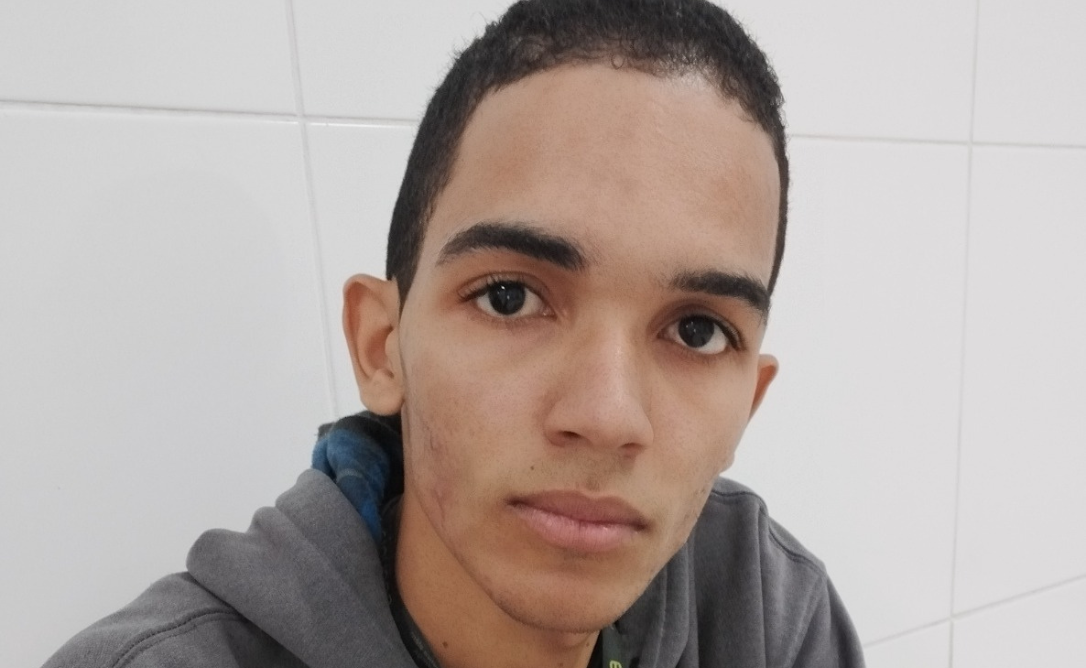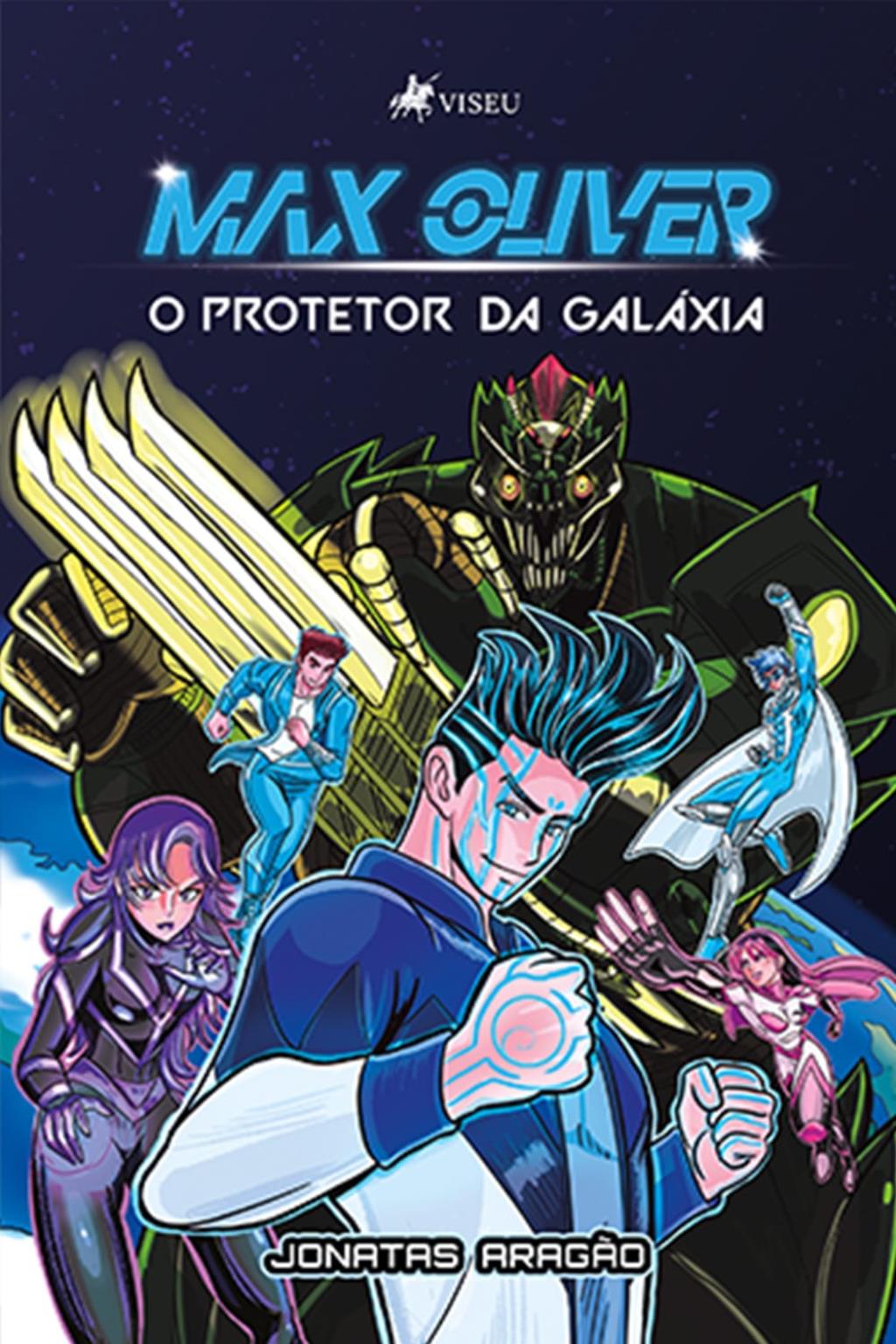
Inspired by geek culture classics from the 1990s and 2000s, writer Jonatas Aragão presents Max Oliver: Protector of the Galaxy, a work that follows the transformation of a humble teenager into an intergalactic hero after merging with an alien artificial intelligence. Featuring multiple dimensions, temporal paradoxes, and references to works like Dragon Ball, X-Men Revolution, and Ben 10, the release goes beyond fantasy and science fiction by addressing the dilemmas of youth, social inequalities, and the power of resilience, establishing itself as a narrative that combines nostalgia, adventure, and reflection.
The origin of the hero – Max Oliver is born from an unlikely encounter with an artificial intelligence. Where did your inspiration come from to create a protagonist who embodies both humanity and technology at his core?
The creation of the character Max Oliver came from various inspirations I had while watching animated films as a child, the main one being Ben 10, whose protagonist inspired me greatly. Furthermore, the character was also based on a real person who sadly passed away very young, but whose kindness, humility, and personality served as a role model. Max Oliver was created to portray the hardships experienced by the people of the Bronx, New York, an area marked by violence, lack of opportunities, and social and police neglect. By placing the character in this context, I sought to convey humanity, showing that, even amid extreme hardship, there are still good-hearted people who live humbly and with dignity, maintaining hope and happiness despite adversity.
Between fiction and reality – Despite its epic, intergalactic setting, the book presents very human dilemmas, such as social inequality, friendship, and growing up. How did you balance fantasy and social critique in crafting the narrative?
For me, it was always essential that Max Oliver be more than just a hero amidst intergalactic battles. From the beginning, I wanted the work to also reflect real human dilemmas, such as social inequality, loss, growing up, and the importance of friendship. The balance emerged naturally, as I used fantasy as a tool to expand these issues and take them to a deeper level. The cosmic setting and universal threats serve as a metaphor for the everyday challenges many people face. Thus, as the reader follows the epic struggles, they are also led to reflect on social reality. The Bronx, for example, is a symbol of this critique, representing marginalized places. In this way, fiction doesn’t distance itself from reality, but rather enhances it.
Tribute and Legacy – The book was created in honor of a childhood friend. How did this emotional memory influence Max’s journey and the message you want to convey to readers?
The fond memory of this childhood friend was one of the cornerstones of Max Oliver’s creation. He was kind-hearted, humble, and always willing to help, even in the face of hardship, and I wanted to bring these qualities to the character. This personal inspiration gave depth to Max’s journey, making him not just a hero, but a reflection of the strength that exists in ordinary people. The work, therefore, pays tribute to this friend’s short but remarkable life. Every decision Max made, every act of courage and compassion, carries a piece of this memory. My goal is for readers to feel that kindness and humanity can be as heroic as facing cosmic villains. More than action and adventure, the message is about legacy and hope.
Sarah Medellín Blake and social barriers – The character breaks class conventions by becoming close to Max. What was your intention in placing this issue of socioeconomic differences at the center of the young adult story?
In the case of Sarah Medellín Blake, my intention was to create a direct contrast with Max Oliver. While he comes from humble beginnings in the Bronx, Sarah belongs to one of the most powerful families in the United States, owning an economic empire that controls everything from basic goods to military resources. However, unlike her proud and elitist family, Sarah is a humble and empathetic young woman who prefers to associate with ordinary people. Her choice to attend a public school, where she meets Max, symbolizes her break with upper-class standards. This relationship demonstrates that true wealth lies in human values, not in wealth. The message is that friendship and love can overcome any social barrier.

The power of geek references – You cite inspirations like Dragon Ball, Justice League, and Ben 10. Which of these references was most decisive in building Max Oliver’s universe, and why?
Among all the geek references that inspired Max Oliver’s universe, the most decisive was undoubtedly Dragon Ball. Since I was a child, I’ve always had a deep attachment to this work and to Akira Toriyama’s work, which left a profound impression on me. The way he expanded his narrative beyond Earth, exploring other planets and civilizations, was essential for me to imagine something similar in my own creation. This influence is already evident in Volume 1, but my intention is that, throughout the 12 volumes, this cosmic expansion becomes even more evident. Dragon Ball showed me that a work can be epic, but also human. This was the foundation for making Max Oliver unique and vibrant.
The villain and his shadows – Táramos, the intergalactic dictator, seeks an artifact that sustains the life of all beings. Do you believe that good villains are essential to revealing the virtues of heroes?
Yes, I believe that good villains are essential to revealing the heroes’ virtues. In the case of Táramos, he represents tyranny, unbridled ambition, and oppression, directly contrasting with Max Oliver’s values. The darker and more menacing the villain’s presence, the brighter the hero’s qualities, such as courage, empathy, and sacrifice, shine. Táramos is not only a powerful enemy, but also a distorted mirror of what Max could be if he chose the wrong path. This duality helps reinforce the protagonist’s humanity and the importance of his choices. For me, without a great villain, there is no great heroic journey.
Creative Process and Overcoming – You began developing this work during a period of financial hardship. How did writing also become a process of personal resilience?
The work Max Oliver was born in a basement, during one of the most difficult times of my life, marked by financial and personal limitations. Writing then became a refuge and a form of resilience, allowing me to transform pain and uncertainty into creativity. Each page written in that simple space was also an act of overcoming and hope. By bringing the character to life, I also strengthened myself, finding the motivation to not give up on my dreams. The creative process showed me that, even amidst adversity, it’s possible to build something great. More than a book, this work represents my own journey of resilience.
From the countryside to the galaxy – You left Jacobina, Bahia, to seek new opportunities in São Paulo. Is this journey of displacement and reinvention also imprinted on Max’s adventurous and dreamy spirit?
Yes, the journey of leaving Jacobina, Bahia, to seek opportunities in São Paulo is deeply reflected in Max Oliver’s adventurous spirit. From a young age, I realized that my hometown offered few opportunities for a solid future, which motivated me to seek new paths. The city of São Paulo and its cultural influences were decisive in broadening my horizons. By creating Max Oliver, writing in a basement with a notebook and colored pens, I felt I was transforming my experiences into something greater. Translating these ideas into an old cell phone was the beginning of a project that I carry with pride today. This experience of displacement and reinvention inspires the character’s dreamy and resilient character. Max carries the same courage of those who need to reinvent themselves to achieve their dreams.
Follow Jonatas Aragão on Instagram


